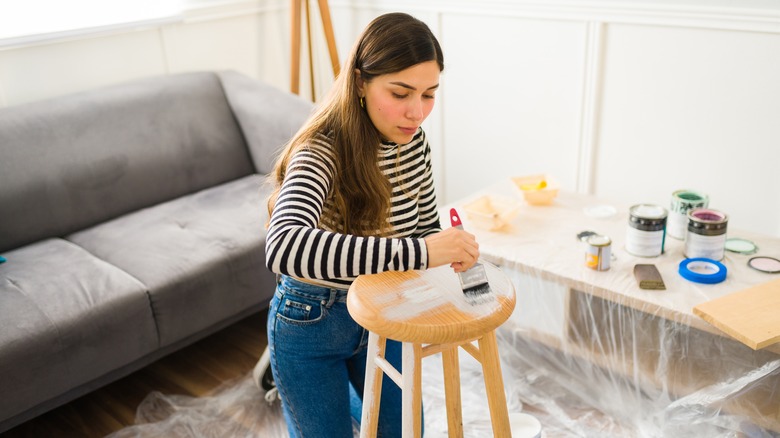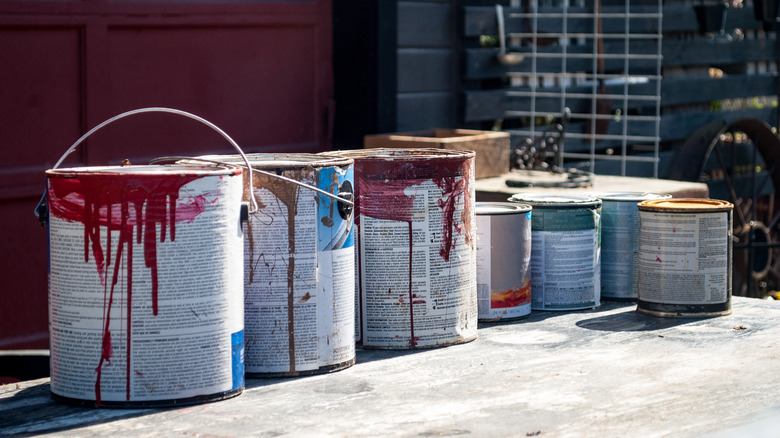The Common Paint Storage Mistake You're Probably Making
DIY paint jobs often mean you're left with a paint can or two of leftover paint after you finish a project. However, if you come back to do touch-ups in a year or so, you may find yourself super confused about which paint you actually used for each project. Save yourself future confusion (and possible mistakes) by writing the paint color and which room you used it in on the top of the paint can before you store it away. This doesn't necessarily apply if you use distinct colors to decorate, but if all of your rooms are decorated in light hues and neutrals, it's easy to get mixed up and potentially start painting a room the wrong shade — a mistake that will cost you time and effort since you'll have to paint it all over again.
Plus, though paint lasts a while in the can, it separates over time, meaning colors can look very different in the tin from how they look on your wall. Colors that don't look similar at first, like blue, gray, and white, may look a lot more similar after some time has passed and the paint has separated. Labeling your paint cans will hardly take any time, and you'll definitely thank yourself for it later.
Avoid these places when storing paint
Now that you know how to keep track of which paint is for which room, where should you actually store your leftover paint? In general, you should store paint in a cool, dry place that's shielded from sunlight but won't dip below freezing temperatures. This means that storing paint in a garage or basement is usually a no-go if you live in an area prone to cold. It's also important that your paint tins do not become damp. Floods and leaks can happen when they're least expected, so put your paint on a shelf or a ledge to prevent it from becoming unusable.
Instead of putting your leftover paint in a garage or basement, try storing it in a broom closet, storage cabinet, or in a cupboard in your utility room. Anywhere that's cool, dry, and not at risk of damp or sub-zero temperatures is ideal. By following this advice, your paint should remain ready to use, and you'll know exactly which paint you used for each of your rooms.

